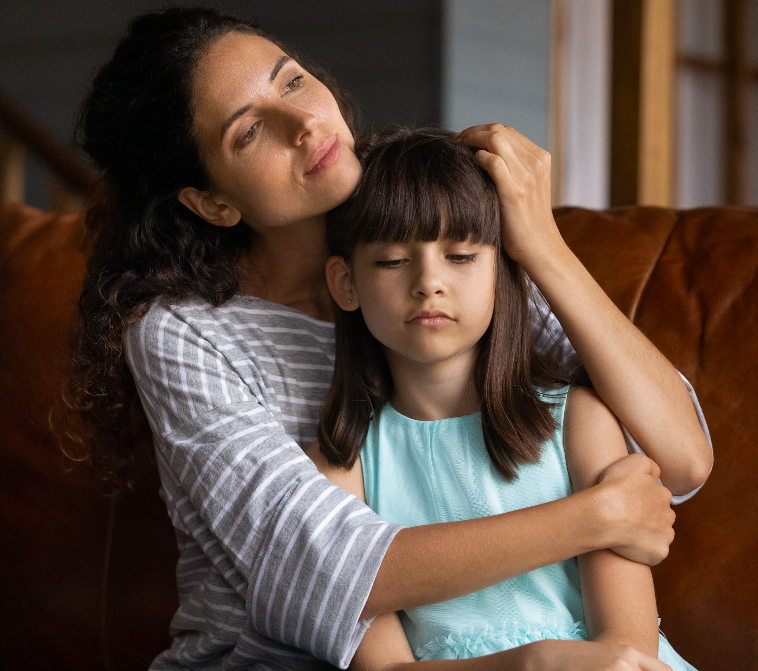Our regular parenting correspondent, Anna Cole, wrote a thoughtful piece on the deeper motivation behind children’s honesty (or lack thereof) for our Autumn issue. Read it below!
Go Beyond Words
The Deeper Truths Behind A Child’s Lies
by Anna Cole
Every lie a child tells has a truth behind it.
As a parent, have you ever heard your child tell a lie and worried about the kind of person he or she will grow up to be? Every lie a child tells has a truth behind it, and different lies signal different truths.
The ‘tall tales’ lies:
One mum I know has a daughter who loves to spin tall tales. She talks about the long trips she has taken, or the five pets she
has at home, or the near-miss adventure she was in at great length and in detail. She works hard to captivate her audience. In listening to her Mum, and thinking about her life, we made a guess that she didn’t want to be left out of the adult conversation. The truth here is that the child badly wants positive attention.
The ‘I’m OK’ or ‘I’m better than you’ lies:
Most children carry a fear of being considered inadequate, or are in contact with others who are highly competitive. Competition means that someone has to be judged as less capable than someone else, and this is always, always hard on children. So some lies are designed to make sure that the child will be seen as adequate. “I have five Barbie dolls at my house” or “I know how to drive now” are boasts that ward off humiliation. The truth is, the child wants to be seen as adequate, as smart and good.
The ‘I don’t want to do it’ lies:
Children will lie when you ask them to report on completing a task. If they don’t want to do the task, but feel that it’s not safe for them to have their opinion about that task, they will just tell you they did it, hoping not to have to face either their big feelings about not wanting to, or your big feelings about their ‘failure.’ Children want to be good and want to cooperate, but they also need times and places where they can say that they don’t feel like cooperating. When there is no such time or place, a lie occurs. The truth here is “I don’t want to, but I can’t tell that anyone will love me if I say that.”
The ‘I’m going to sneak to get what I want’ lies:
These are pretty similar to the “I don’t want to do it” lies—there’s something that the child wants, and he’s pretty sure that no one reads how powerfully these desires drive him. So, rather than face his feelings of need, he goes about silently getting the desired thing. (We grownups do this all the time! We sneak a piece of chocolate from the cupboard when we diet, we sneak a few more minutes drinking a cup of tea before taking the children to school, making ourselves speed through the city instead.) The truth here is, “I want! And it doesn’t look like there’s any room to have what I want, or to show how badly I want.”
The ‘I didn’t do it’ lies:
These are probably the most common, and the hardest for grownups to deal with. We see that our child has done something that’s beyond reasonable limits. We know who did it, and want the child to admit it. But he won’t. We want the child to take responsibility, but he keeps lying.
This is, for most parents, infuriating and frightening. We begin to worry about our child, and the kind of person he will be when he grows up! The truth behind this lie is an important one. We are big, children are little, and they depend – depend for their lives – upon our love and approval.
They won’t threaten their lifeline to us by saying something that will make us more distant from them, or angry at
them, or harsh toward them. They can’t (and perhaps shouldn’t be expected to) cut their own lifeline to love in that way. It’s a terrible thing to be humiliated. It’s a terrible thing to face an adult’s anger, or an adult’s punishment, when you are a quarter of their size and fully dependent on their approval. Punishment and blame eat like acid at a child’s sense of security and hope. The truth behind this kind of lie is, ‘I have no idea why I misbehaved. All I know is that my life depends on my mum and dad’s approval.’
In a world that met children’s lies with adult warmth, connection and loving limits, rather than shame and punishment, we maybe wouldn’t end up with adults in positions of high authority and responsibility who still have to lie to get what they want. That little child inside them is still too afraid to own up and tell the truth. The five tools we teach at Hand in Hand Parenting will help you see the truth behind the lies, and know what to do about it to end the cycle of insecurity that fuels them.
Parenting by connection is a radical act, changing the world one ‘white lie’ at a time. Tune in next issue for more information about how to respond to lying so that your child can grow to be an adult who is able to admit their mistakes, speak the truth, and speak truth to power.
With thanks to Patty Wipfler, Founder of Hand in Hand Parenting, on whose work these ideas are based.
Anna Cole, PhD is a Certified Instructor with Hand in Hand Parenting, and the UK & Ireland Regional Lead. You can find out more about her work at handinhandparenting.org


